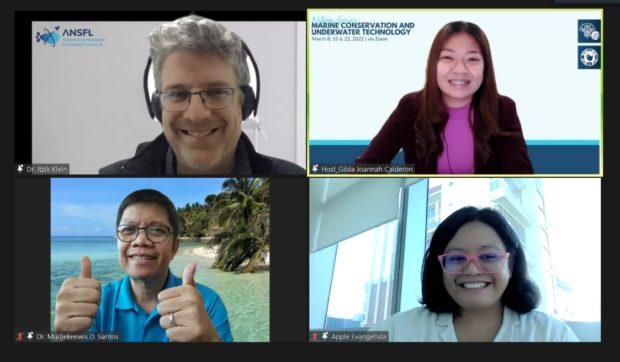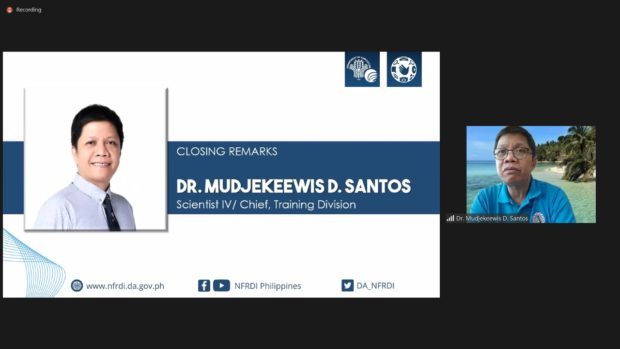Globe, DA-NFRDI, Haifa University highlight importance of technology in marine conservation
Globe, in partnership with the Department of Agriculture’s National Fisheries Research and Development Institute (DA-NFRDI) and Carmel-Haifa University Economic Corporation Ltd from the University of Haifa in Israel, recently held a webinar series with students, teachers, fisheries experts, and marine conservationists that tackled the importance of incorporating underwater technology in marine conservation.
The training sessions aimed to give industry practitioners insights on innovative tools and technology that can support marine conservation efforts. One of the topics discussed was the importance of using navigational tools, which is crucial for an archipelagic country such as the Philippines, where the fishing industry provides livelihood for over two million people.
The webinar series was led by Dr. Itzik Klein, Haifa’s head of the Autonomous Navigation and Sensor Fusion Lab, who gave lectures on The Art of Navigation, the history of satellite navigation and its current applications, the basic principles of inertial sensors and available technologies, pedestrian dead reckoning: navigation indoors (including the use of smartphones), and autonomous underwater vehicle navigation.
The University of Haifa is the largest research university in northern Israel. Haifa’s Charney School of Marine Sciences was the only Israeli program included in the 2020 Shanghai Academic Ranking of World Universities for Oceanography in the top 200 universities worldwide. Carmel-Haifa University Economic Corporation Ltd. serves as the commercialization and business arm of the University of Haifa.
Article continues after this advertisementKlein currently serves as an assistant professor and head of the university’s Autonomous Navigation and Sensor Fusion Lab at the Hatter Department of Marine Technologies. He has taken on research topics such as data-driven navigation, novel inertial navigation architectures, autonomous underwater vehicles (AUV), sensor fusion, and estimation theory.
Article continues after this advertisementHis discussion on navigational concepts and related underwater technologies aims to help the academe, private sector, and government agencies find efficient and cost-effective solutions to exploring and monitoring the marine environment. Such is crucial to effectively tackle the impacts of climate change, marine resource exploitation, and destructive and unsustainable fishing practices, which pose risks to the country’s rich biodiversity, food security, and livelihood.
Dr. Mudjekeewis Santos, chief of DA-NFRDI’s Training Division, cited the urgency and relevance of the discussions in the webinar series.
“Coming from the latest Intergovernmental Panel on Climate Change report released in August, we see this discussion to be very timely as it gives us an idea on how we can strategically pivot or respond to climate change being a highly vulnerable country to its impacts. Gathering information about our water bodies, especially on marine life, is a vital first step,” Santos said.
“This webinar came at an opportune time as we are currently researching building our own research vessel or AUV to help us collect data on our marine ecosystem,” he added.
“As a country made up of over 7,000 islands, the Philippines is surrounded by several bodies of water that contribute to the way of life of Filipinos across Luzon, Visayas, and Mindanao. Many are dependent on coastal resources for their livelihood,” said Apple Evangelista, Globe’s Head of Sustainability and Social Responsibility.
She added, “While our country is part of the center of marine biodiversity in the world, the degradation of coastal and marine ecosystems is also very apparent. The new knowledge gained from these webinars shows us how technology can not only serve as inspiration for solutions, but also a means for collaboration to address these challenges.”
Globe and DA-NFRDI have been supporting local communities through products and services such as ISDApp, the first community-based app in the Philippines that communicates weather data to fisherfolk and helps improve their understanding of the environment they work in, utilizing the power of data even without smartphones and internet connection. It has been piloted in Dingalan, Aurora, and Sariaya, Quezon.
To know more about Globe, visit www.globe.com.ph and NFRDI via their website www.nfrdi.da.gov.ph

